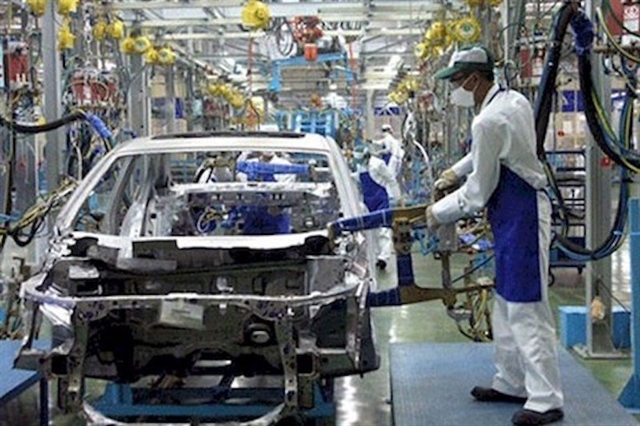 In the Spotlight
In the Spotlight

A clip documenting the refusal of security guards to allow an ambulance transporting a dying baby to leave the Hà Nội Paediatrics Hospital early this month has generated public anger. Health workers and patients shared with Việt Nam News their opinions about health service issues, particularly relating to emergency medical aid.
A clip documenting the refusal of security guards to allow an ambulance transporting a dying baby to leave the Hà Nội Paediatrics Hospital early this month has generated public anger. Health workers, officials and patients shared with Việt Nam News their opinions about health service issues, particularly relating to emergency medical aid.
 |
| Dr. Trần Văn Phúc |
Doctor Trần Văn Phúc, Saint Paul General Hospital, Hà Nội.
Patient transportation is a very complicated process in which transporters or accompanying medical staff, including doctors, nurses and technicians, play the most vital role. The transporters and health workers should possess high professional qualification so that they can assess whether the patient is in a life-threatening condition. That is the reason why a majority of patients and their families hire ambulances that charge far more than a taxi or any other type of transport.
The incident at the Pediatrics Hospital, as reported in the media and on social networks recently, is proof that the ambulance services are facing serious problems.
Watching the clip, it was obvious that the two hospital guards were wrong in trying to harass the ambulance driver. Police have started to investigate the case, but for me this is analgesic relief - not a treatment for the disease.
Let’s take a look at a road accident that occurred in Ái Mộ street in Hà Nội’s Long biên District last February. Three people were killed, including a seven-year-old child. The child might not have died had he been brought to hospital in time, but he had to wait 40 minutes for the ambulance.
The entire ambulance service needs serious examination not just of its quantity, but also its quality.I appreciate the Ministry of Health allowing private ambulance services. I have been in an ambulance both as a patient and as a doctor, and I myself once paid for a private ambulance to transport a relative back home in the central Nghệ An Province. Why do I or other people choose to hire a private ambulance? Because we can choose one that we can afford.
For a patient who needs medical emergency aid, an ambulance is not just a means of transportation to the hospital. He/she could lose their lives in a low quality ambulance with unqualified and ill-trained or inexperienced health workers.
I had opportunities to witness many ambulances in which health workers were experienced and skillful, at the same time very hard working, helping save many lives. They all were skilled in assessing patients’ condition and knew how to conduct exact and efficient emergency aid during the transportation.
Last but not least important, I appeal to everyone to search for information about ambulance services so that they have the most essential understanding of the issue. This will not only help themselves but also boost the entire health service system.
 |
| Lương Ngọc Khuê |
Although the security guards in question worked for a security company that had a contract with the Pediatrics Hospital, they were hospital staff in the eyes of the patients and society.
Their uncivilised behaviour stained the reputation of not only the National Hospital of Pediatrics (NHP) but the whole health sector.
Though the hospital director claimed responsibility and apologised to the patient’s family quite late after what had happened, it still won the hearts of the public.
The Ministry of Health (MoH) has asked the hospital to investigate who is responsible, such as the Administration and Management divisions. The security company also has to apologise to the patient’s family and the hospital.
Hospital ambulances play a key role in transporting patients in time for treatment. The MoH will conduct a comprehensive review of the operations of ambulances and taxis serving the hospital. Hospital ambulances have to run in line with the hospital regulations while providing private ambulances is categorised as a conditional business sector and thus requires an operating licence. The MoH will have to check the licences of each private ambulance to make sure that no substandard ambulances are operating.
The ministry also ordered hospitals not to restrict the rights of the patients to select ambulance services in and out of the hospital, yet it has to go with ensuring security in the hospitals at the same time. The bidding procedures to pick an ambulance service at the hospital have to be transparent, with the fees made public at every department and division to let the patients know.
Regarding the security at hospitals, it is important work as people coming in and out of the hospitals are from all walks of life. As a matter of fact, it is very common for family members of patients to harrass medical workers. Security guards in such cases help to ensure the safety of the hospital equipment and of the patients.
The behaviour of the security guards can affect the patients’ general satisfaction of the hospital service, so we will do our best to remove the ones with substandard behaviour toward patients, and ask that security guards get training and have a certificate of a behavioural code of conduct as a compulsory requirement to work at a hospital. The hospitals, meanwhile, have to install cameras at the gates to monitor security.
Trần Văn Bội, Director of northern Thái Bình Province’s 115 Emergency Centre
Health systems and services consist of three continuous stages: pre-hospital care, inpatient hospital care and rehabilitation. Pre-hospital care plays an important role and affects the two other stages. If a patient is given proper initial medical care and is carried to the hospital in time, medical costs and the time required for treatment are lessened and the rehabilitation can achieve positive results sooner. If not, inpatient care will last longer and be more expensive, making the patient suffer increased disability or even death.
In developed countries, so much importance is attached to pre-hospital care that paramedics are provided sufficient medical equipment and techniques so that they can handle almost all situations, even surgery.
Pre-hospital care is included in the State’s healthcare system. The Government allocates funding for pre-hospital care within the State’s budget, healthcare insurance and donations.
In Việt Nam, pre-hospital care usually conducted by 115 Emergency Centres is not given proper attention, for example relating to models of organisation, facilities, medical equipment and policies for staff. Some provinces don’t have 115 Emergency Centres.
Việt Nam also allows private companies to provide pre-hospital care services including transportation to an appropriate receiving facility. Some of the service providers fail to meet requirements in expertise or equipment. In some cases, private cars are illegally used as ambulances.
Fake or unqualified ambulances are among health officers’ concerns, particularly when they pick up patients who have been discharged from hospital but still need medical assistance.
Normally, hospitals will not transfer patients if they find the ambulance unqualified, for example, there is no doctor in the ambulance.
It’s necessary to restrict unqualified ambulances, particularly private ones providing service at hospitals. However, some hospitals are unable to control the problem as hospital staff or brokers collude with drivers.
 |
| Nguyễn Văn Đệ |
Nguyễn Văn Đệ, chairman of Việt Nam Private Hospitals Association
I’m so sorry to learn about the incident at the Việt Nam National Hospital of Paediatrics that local media reported early this month. The incident revealed problems in managing and controlling ambulances arriving and leaving hospitals. It not only woke up the National Hospital of Paediatrics but also other hospitals about services provided in hospitals which are not medical examinations and treatment, but also parking, canteen, security and transport.
I think that any services provided in hospitals must be at least twice as good as those provided in other places because people who arrive and stay in hospitals suffer illness, pain, worry and stress more than healthy people. They are special clients and special services are needed for them. For example, a guard in a hospital should not only ensure security and order but also be willing to help patients. Ambulance drivers should know medical techniques to offer assistance to health officers. Cooks at hospital canteens are also nutrition consultants and food safety officers to patients and their family.
There is a major difficulty in selecting competent service providers for hospitals as now, we have numerous service providers but few of them are qualified or able to work professionally. When the service providers are not professional plus work in overcrowded environments like Việt Nam’s public central hospitals, regrettable incidents can happen.
However, on the other side of the coin, we must raise questions about the transparency in bidding for providing such services in public hospitals. Do competent service providers have a chance to win the bidding?
As far as I know, in many private hospitals, the hospitals provide such hospital logistic services by themselves, such as the guards belonging to the Administrative Department, the canteen is part of the Nutrition Department, and the cleaners belong to the Orderly Department.
Such personnel arrangements makes such workers aware that patients are those who pay them.
In order to improve such services at public hospitals where many services now are provided by outsiders, close oversight and clear obligations and responsibilities must be included in their agreements. The hospitals are also responsible in training and testing the staff of service providers. Any one working in a hospital must understand that patients pay them and their work performance could affect to the hospital’s prestige.
When it comes to hospital logistic services, private hospitals in Việt Nam have more advantages than public ones.
 |
| Lưu Thị Phương |
Nguyễn Thị Phương, 31, a patient and mother of two, Hà Nội.
I heard through the media and social networks about how Hà Nội Pediatrics Hospital security guards prevented an ambulance from leaving even though it was carrying a nine-month-old heart patient.
I myself think that it is con sâu làm rầu nồi canh, “One scabby sheep is enough to spoil the whole flock”.
I myself once had to stay at a hospital for treatment. I have two little children and sometimes I have also brought them to see doctors at the Pediatrics Hospital.
Actually, I am fearful about the overloaded examination facilities is whenever we come.
About the ambulance service, I have a simple opinion. When a patient needs to be taken to an emergency room or moved to a central-level hospital, any ambulance, private or not, is ok, depending on the wishes of the patient family.
However, hospital guards should not interfere.
Ambulance service is important, it can save or kill a person. So, professional knowledge and responsibility of the medical staff in an ambulance must be strictly supervised. I see the health sector has invested a lot in hospital infrastructure and medical equipment in examination rooms, but the quality of ambulances seems be ignored. Many ambulances operating in the provinces, even in Hà Nội, are obsolete.
Many patients and their families are very tired when being treated at overloaded hospitals and facing the pressure of payments. Hospital staff should create favourable conditions to help them.
Although the infrastructure and medical equipment of State-owned hospitals in Việt Nam havve improved, and the quality of health services is better in recent years, I think it still doesn’t meet all the residents’ expectations. I also want to emphasise that I have trust in Vietnamese doctors’ responsibility and professional knowledge.
All the members of my family and I agree that the earnest and kind-hearted behaviour of doctors, nurses and security guards at hospitals will create great confidence in patients. — VNS



.jpg)





